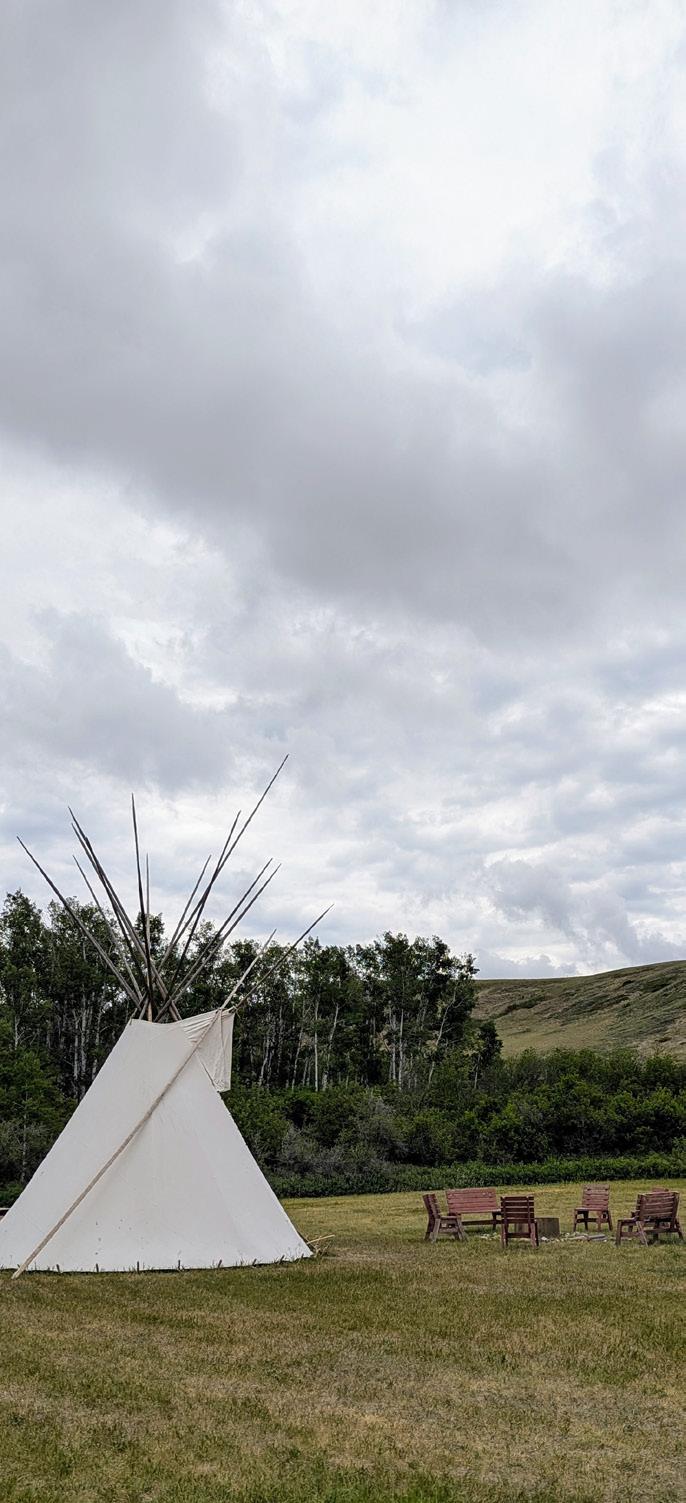Psychologists’ Association of Alberta
Psymposium
VOL.36 NO.2 // SEPTEMBER 2025
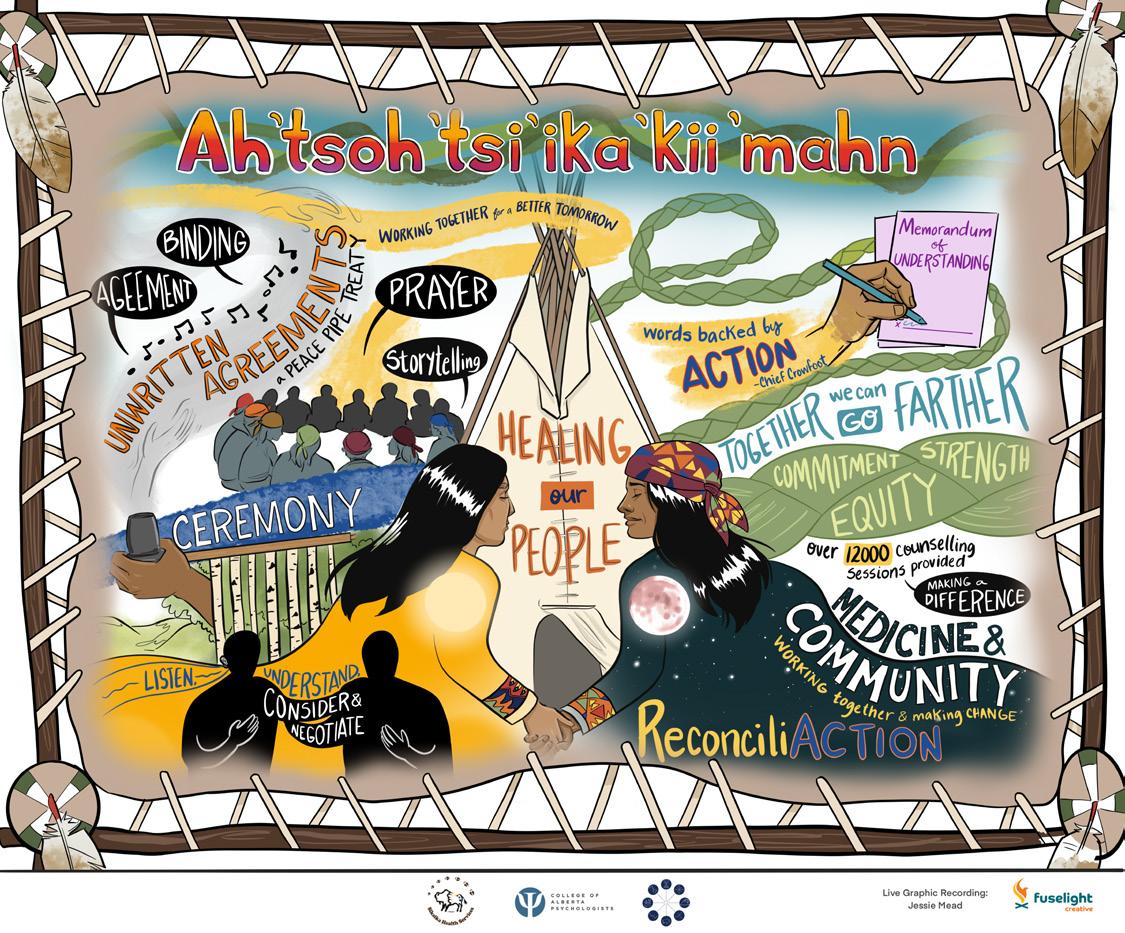
IN THIS ISSUE
NEW COLUMN: Indigenizing Psychology with Leigh Sheldon, R.Psych
HELLO FROM OUR NEW CO-EDITORS: Dr. Alana Ireland, R.Psych & Dr. Lily Le, R.Psych
ETHICS CORNER: Honouring Indigenous Knowledge and Worldviews
EXPLORING ASSESSMENT: Culturally Humble, Culturally Safe: Rethinking Assessment with Indigenous Clients
Board of Directors
President: Dr. Quintina Bearchief-Adolpho, R.Psych
President-Elect: Stacey Steele, R.Psych
Audit Committee Chair: Chris Pawluk, R.Psych
Board Custodian: Rashmani Chakrabarty, R.Psych
Members at Large:
Tamara Austin, R.Psych
Carmen Bellows, R.Psych
Rashmani Chakrabarty, R.Psych
Dr. Sandra Dixon, R.Psych
Lisa Kaldenbach, R.Psych
Dr. Allison McNeil, R.Psych
Editorial
Editors:
Dr. Alana Ireland, R.Psych
Dr. Lily Le, R.Psych
June Contributing Writers:
Dr. Harpreet Gill, R.Psych
Leigh-Anne Sheldon, R.Psych
Dr. Gina Ko, R.Psych
Dr. Naheed Jawed, R.Psych
Dr. Mitch Colp, R.Psych
Design and production: Jennifer Whyte
PAA Psymposium [ISSN 1193-2627] is the official newsletter of the Psychologists’ Association of Alberta. Canadian Publication Mail Product Sales Agreement #40020241.
Except where specifically indicated, the opinions expressed in Psymposium are strictly those of the authors and do not necessarily reflect the opinions of the Psychologists’ Association of Alberta, its officers, directors, or employees. The Psychologists’ Association of Alberta reserves the right to edit all articles and submissions before publication and to decide on the suitability for publication.
PAA Psymposium is published five times a year (January, March, June, September, November) for the purpose of fostering communication amongst psychologists and supporting the goals of the Association and the profession of psychology. The newsletter is available to all members of the PAA on our website or by subscription, as well as to public subscribers and selected individuals and organizations with interests in the practice of psychology.
Except where otherwise indicated, copyright 1998 by the Psychologists’ Association of Alberta are in effect. Permission is granted to reproduce up to 10 copies of any article as it appears in PAA Psymposium, if such reproductions are distributed without profit for educational or research purposes only and properly cite Psymposium and denote PAA copyright. Permission for additional reproductions or reproduction for commercial purposes must be obtained in writing from the Editors. PAA generally welcomes requests to reprint from other professional newsletters.
Psymposium is submitted to PsycEXTRA, a database set up by the American Psychological Association, which contains newsletters, policy papers, white papers, fact sheets, reports, magazines. PsycEXTRA is a companion to the American Psychological Association’s scholarly database PsycINFO.
Psychologists’ Association of Alberta Suite 101, 1259–91 Street SW Edmonton, AB T6X 1E9
780-424-0294 // paa@paa-ab.ca
Mission and Vision
The mission of the PAA is to advance the science-based profession of psychology and to promote the well-being and potential of all Albertans. PAA and its members are recognized leaders in enhancing the psychological health of all Albertans.
About Psymposium
Looking to advertise with us? Visit our website: paa-ab.ca.
Stay Connected



PAA STAFF
Chief Executive Officer
Dr. Bill Hanson, R.Psych
Chief Operating Officer
Joanna Leung
Governance Officer
Angela Sargent
Director of Professional Affairs
Dr. Harpreet Gill, R.Psych
Professional Guidance Officer
Annika Rorem
Continuing Professional Development Officer
Madison Fankhanel
Member Engagement Officer
Arim Kim
Member Services Officer
Emma McGrath
Executive Assistant
Jiya Juneja
Communications Officer
Jennifer Whyte
New column! Indigenizing Psychology
Understanding the Past to Take ReconciliACTION
Anti-racism and Psychology
Calls to Action to Honour Our First Peoples
Exploring Assessment
Culturally Humble, Culturally Safe: Rethinking Assessment with Indigenous Clients
Innovative Practices in Psychology
Centering Healing Through Culture, Land, and Intergenerational Knowledge: With Randi Sager, R.Psych

In the spirit of reconciliation, Indigenous-owned and operated businesses and organizations were contacted and offered free advertising space in this issue.

PAA In the Community
Finding a Path for Healing Through Community and Collaboration
Upcoming webinars and workshops
PAA’s Volunteer Program
Listening in Action
PAA’s 2025–2026 Professional Development Series Have an Ethical Dilemma?
2025 PAA Award Winners
Read all about this year’s winners
Engaging with PAA’s Collaborate Platform
Community Spotlight: Indigenizing Psychology
A graphic recording of the June 20, 2025 ceremony and MOU signing between Siksika First Nation and the College of Alberta Psychologists.
Read more about the June 20, 2025 MOU signing on page 8.

LETTER FROM THE EDITORS
By Dr. Alana Ireland, R.Psych & Dr. Lily Le, R.Psych
Hello Psymposium readers! We’re Drs. Alana Ireland and Lily Le, and we’re excited to serve as your new Psymposium coeditors. As Registered Psychologists and clinical leaders, we’ve built our careers across different corners of the profession — from shaping future clinicians in the classroom and leading private practice, to developing digital mental health solutions and driving clinical innovation within organizations. What unites us is a deep commitment to the evolving role of psychology in Alberta and our belief in its power to uplift, adapt, and create meaningful impact. We’re honored to help shape the voice of psychology through this publication.
As new co-editors, we’re eager to learn what matters most to you so we can strive to capture your perspectives and make Psymposium valuable for you.
While this publication has traditionally had a single editor, we believe that by joining forces we can enhance its impact through collaboration and diverse perspectives. Our goal is to bring a fresh outlook and deliver thoughtfully crafted editions that feel both relevant and valuable to you.
This month’s edition highlights a theme essential to every September issue: Truth and Reconciliation. While the calendar marks this observance in the fall, the work of truth, healing, and justice must extend far beyond a single month. As Canadians, psychologists, and settlers on this land, we carry a responsibility to honor Indigenous histories, cultures, and traditions, and to center Indigenous voices in both our profession and our daily lives. The articles in this issue remind us that cultural humility and accountability are essential threads in all aspects of psychological practice — from counselling and assessment to the ways we show up in community. Our contributors share reflections and lived experiences as Indigenous people and allies, offering guidance and inspiration for taking meaningful action.
As new co-editors, we’re eager to learn what matters most to you so we can strive to capture your perspectives and make Psymposium valuable for you. Whether it’s feedback, ideas, or simply a hello, feel free to email communications@paa-ab.ca. We’d love to hear from you.
Alana & Lily
PAA Members and Psymposium Co-Editors
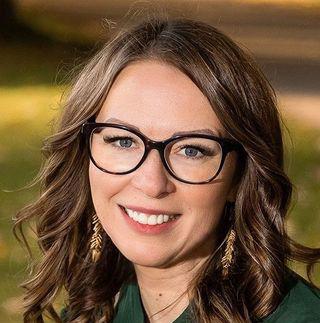

Dr.Alana Ireland, R.Psych Founder, Valeo Well-Being Associate Professor, Athabasca University
Dr. Alana Ireland (she/her) is an Associate Professor and Registered Psychologist whose research and practice focus on weightrelated issues such as obesity, eating disorders, body image, and weight stigma, with a foundation in health promotion and social justice. Her work has emphasized the importance of interdisciplinarity and translating findings from research into practice.
She is passionate about advancing the profession through psychologist education and training, conducting research that informs practice, and promoting mental health, body acceptance, and well-being.
Dr. Alana Ireland obtained her PhD from the University of Calgary’s CPA-Accredited Counselling Psychology Program.
Dr. Lily Le, R. Psych. Director of Clinical Innovation, DiveThru
Dr. Lily Le (she/her) is a Registered Psychologist blending clinical experience, digital mental health innovation, and evidenceinformed care solutions. She currently serves as Director of Clinical Innovation at DiveThru, where she leads the development of techenabled tools, care models, and system-level strategies to reduce barriers and expand access to mental health support.
She is passionate about building sustainable approaches that elevate outcomes and enhance the experience of both clients and clinicians, and committed to amplifying the voice and impact of psychologists through conversations that move the profession forward.
Dr. Lily Le obtained her PhD from the University of Alberta’s CPA-Accredited Counselling Psychology Program.
NOTES FROM THE CEO’S DESK
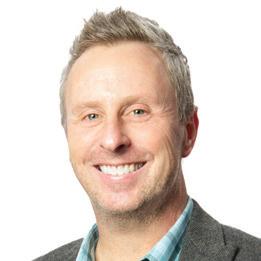
Dear PAA Members,
A Meaningful Journey, Together: “One PAA”
By Dr. William E. Hanson, R.Psych
What an eventful first few months it has been. When I wrote my first “Notes” a few months ago, I noted with “an open heart, mind, and enthusiastic anticipation of things to come.” That enthusiasm remains strong today; it’s even stronger, I’d say. Since that time, my respect and admiration for PAA’s community have deepened. Every member interaction, Board discussion, and staff meeting reminds me of PAA’s vitality, not just for the profession, but also the well-being of Albertans.
As I listen, learn, and lead, I remain laser-focused on calibrating PAA’s processes and procedures and delivering tangible benefit and value to you and creating a strong, unified organization—“One PAA.”
To that end, we are conducting a comprehensive member benefits survey. This survey helps identify what matters most to you, and how we can improve your member experience. We recently conducted an environmental scan of comparable psychology associations across North America. As a result, we have many innovative ideas in mind. Please share yours and fill out the survey1 .
I remain laser-focused on calibrating PAA’s processes and procedures and delivering tangible benefit and value to you and creating a strong, unified organization—“One PAA.”
From PAA’s standpoint, it’s all about your professional journey and truly valuing the association. The very notion of “member journey” has come into sharper focus recently, and PAA is actively personalizing our outreach, further supporting member career stages and development, and enhancing touch points like welcome series, resource access, and community engagement opportunities. Your membership isn’t a transaction; it’s a relationship. We want to ensure you feel supported and
connected and that we’re on the same page. We want a shared purpose and mission, with collectively achievable outcomes. In my first 100 days, everything was under the microscope: PAA’s alignment with Alberta’s Societies Act, governance structures, bylaws, policies, and procedures. We’re augmenting PAA’s website, IT, and cybersecurity; adding Drs. Alana Ireland and Lily Le as new Co-Editors of Psymposium; and reaching out to PAA’s new and early career members. These initial steps reflect our commitment to revitalization, modernization, and elevating PAA. Additionally, we are committed to celebrating our members. Next month’s Award’s Gala will be a see-and-be-seen event! Please join us for this annual event on October 32.
PAA’s work is guided by foundations of psychological science and principles of fairness, equity, and reconciliation. In June, I participated in the historic agreement between Siksika Health Services and the College of Alberta Psychologists (see this issue’s beautiful cover). This agreement involved a traditional pipe ceremony and contemporary signing of a Memorandum of Understanding. As I said that day, “It’s not only about doing the right thing, but about doing the right thing for the right reasons.” This agreement was made for the right reasons. PAA remains committed to the Truth and Reconciliation Commission’s Calls to Action. I am deeply proud of our Board president, Dr. Quintina Bearchief-Adolpho, whose leadership inspires us all. Moving forward, PAA will continue championing diversity, professional identity, the health and well-being of psychologists, and mental health advocacy in Alberta. Our Collaborate platform, innovative measurement-based professional guidance program, and expanded CE offerings are just a few ways PAA empowers and assists you in your important work.
With open hearts and shared purpose, we will ensure that PAA is not only a haven and professional home, but a place where psychology thrives. A place you are proud of.

PAA CEO
1. www.surveymonkey.com/r/FYBXDFB
2. psychologistsassociation.ab.ca/event/2025-paa-gala
PRESIDENT’S MESSAGE
By Dr. Quintina Bearchief-Adolpho, R.Psych President, PAA Board of Directors

Oki Everyone,
Foster intergenerational healing by consistently aiming to be the best professional you can be, remaining aware of evidence-based practices, and working within your area of expertise— especially when serving First Nation, Métis, and Inuit clients.
This month marks the National Day for Truth and Reconciliation, also known as Orange Shirt Day. As I reflect on what led to the recognition of this day, I think about the stories of my parents. My father, Clement Bearchief, was sent to a residential school at a very young age, where he was beaten, sexually assaulted, had his braids cut off, and was forced to speak English. My mother, Theresa Cross Child Bearchief, was sent to Camsell Hospital at the age of fourteen because she allegedly had tuberculosis; this is where one of her lungs was removed. Thankfully, she didn’t experience forced sterilization. These are horrific yet true stories. It saddens me that my parents had to endure this, along with countless others. I understand that many others have similar tragic stories, but today I would like to focus on the story I know.
Through epigenetics research, I have learned that our gene expression can be influenced by traumatic experiences, which can be passed down through generations. The term for this is intergenerational trauma. Many First Nations, Métis, and Inuit people experience this, but I have observed that working together as professionals, community members, and elders can foster intergenerational healing.
As professionals, we can support this healing journey through our expertise. I have observed therapeutic approaches like Internal Family Systems (IFS), Eye Movement Desensitization
and Reprocessing (EMDR), Accelerated Resolution Therapy (ART), psychedelic treatments, somatic therapy, and many others help individuals on their healing paths. Additionally, other modalities, such as land-based therapy, cultural ceremonies, yoga, boxing fitness, or dance, can also be effective in helping individuals reconnect their mind, body, and spirit.
Although my parents endured traumatic experiences, they began their healing journey, for which I will always be grateful. I believe they, along with many other parents, took steps to break the cycle of intergenerational trauma and started us on the path of intergenerational healing.
How can you honour National Day for Truth and Reconciliation? Foster intergenerational healing by consistently aiming to be the best professional you can be, remaining aware of evidence-based practices, and working within your area of expertise—especially when serving First Nation, Métis, and Inuit clients.
Together, we can contribute to addressing intergenerational trauma and foster intergenerational healing.
Dr. Quintina Bearchief-Adolpho, R.Psych, PAA Board President
PAA membership includes benefits from many service providers.
Enjoy group insurance rates for practitioner liability and health, stay on top of technology, and take advantage of discounted hospitality rates.
EXPLORE BENEFITS


Exclusive professional liability insurance for current members.
Exclusive group rates and personalized coverage for home and auto insurance.

Enjoy a one-month grace period on your new account.

Premium savings on eligible TD Term Life Insurance policies.
1. psychologistsassociation.ab.ca/renew-membership-2025-2026/
ACCESS YOUR BENEFITS
If you’re already a member, just sign in to access your membership benefits.
Not a member? Join one of the strongest Provincial professional associations in psychology.
> Join PAA1 > Sign in to your account2

Current PAA members can receive up to 20% off a GoodLife membership.

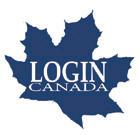
Members can purchase psychology books at a 5% discount.

Special discounted rates for PAA members.
Wyndam: Edmonton location only Element by Westin: Calgary Airport location only Four Points by Sheraton: Calgary Airport location only
2. psychologistsassociation.ab.ca/my-account/
What benefits are you looking for from PAA?
Help us identify potential member benefits you would like to have access to through our association.
www.surveymonkey.com/r/FYBXDFB

Finding a Path for Healing Through Community and Collaboration
By Jennifer Whyte
On June 20, 2025, the Psychologists’ Association of Alberta was honoured to be invited to Siksika for a significant and meaningful ceremony to mark a critical Memorandum of Understanding (MOU) signing between Siksika Health Services and the College of Alberta Psychologists (CAP).
Siksika Health Services and the College of Alberta Psychologists (CAP) have come together to establish a framework for continuous collaboration and problem-solving, while honouring knowledge and wisdom (Siksika Health Services, June 2025)1. This partnership reflects the real work being done, and the work that needs to be done, in pursuit of true reconciliation and to support pathways to healing for all communities.
“As an association committed to psychological science and competent service, we must also commit to reconciliation—not as a one-time act, but continuously and genuinely.”
—Dr. Bill Hanson
PAA Board President, Dr. Quintina Bearchief-Adolpho (R.Psych) has been the key element working closely with CAP to bring about this partnership, even during her time as President-Elect.
“Psychological health and wellbeing are multifaceted and deeply connected to land, culture, and community. As an association committed to psychological science and competent service, we must also commit to reconciliation—not as a one-time act, but continuously and genuinely. At PAA, we are committed to ongoing acts and partnerships. Angela (PAA’s Governance Officer), Jennifer (PAA’s Communications Officer), and I were honoured and grateful to be part of the signing and ceremony at Siksika.” —Dr. Bill Hanson, R.Psych and PAA CEO.
The event itself incorporated traditional and cultural elements to properly demonstrate the combined efforts behind the MOU. Before signing, attendees and community members took part in a traditional pipe ceremony with Siksika Elders to mark the unity
this event signifies. It also represented a way to speak truthfully and plainly about history, the importance of this agreement, and the work that needs to happen now that it is in place.
Combining wisdom, knowledge and ways of practice from community to the college will allow for the best of both worlds when it comes to serving and healing communities.
Thank you to Siksika Health Services and CAP for inviting the PAA team to participate.
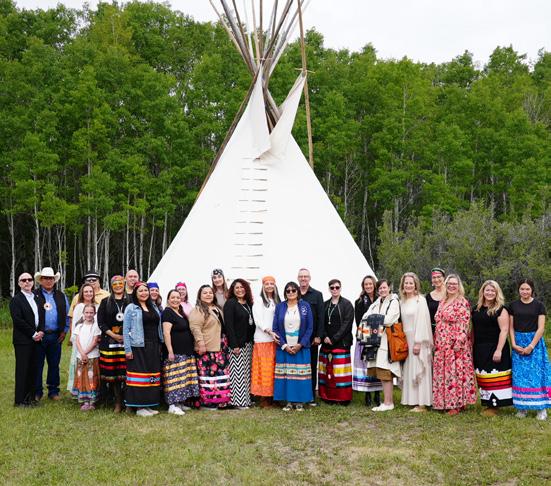
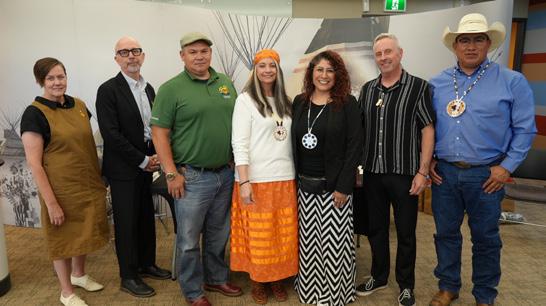
Upcoming Professional Development Events

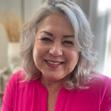

October 7, 2025
Indigenous Wisdoms in Practice Part II: Advanced Tools for Wellness with Dr. Karlee Fellner
Edmonton | 6CE Credits
October 14, 2025
Free For PAA Members: Unmasking Harm OCD: A Journey from Intrusive Unwanted Thoughts to Healing with Janet Caryk
Virtual | 1CE Credit
November 17, 2025
Evidence-Based Practice: What It Is & How To Do It with Dr. Cody Guy House Virtual | 5CE Credits
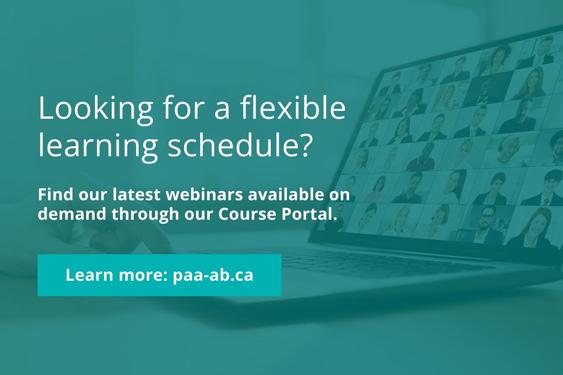

Get involved with our vibrant professional community
Volunteer with our association!
As a valuable member of PAA, you play a key role in our professional community. And as one of our volunteers, you can directly contribute to PAA’s mission and support the excellence within our profession.
Our volunteer opportunities are varied and rewarding. Join our team of ongoing volunteers as we make a difference.
VOLUNTEER PROGRAM
psychologistsassociation.ab.ca/volunteer
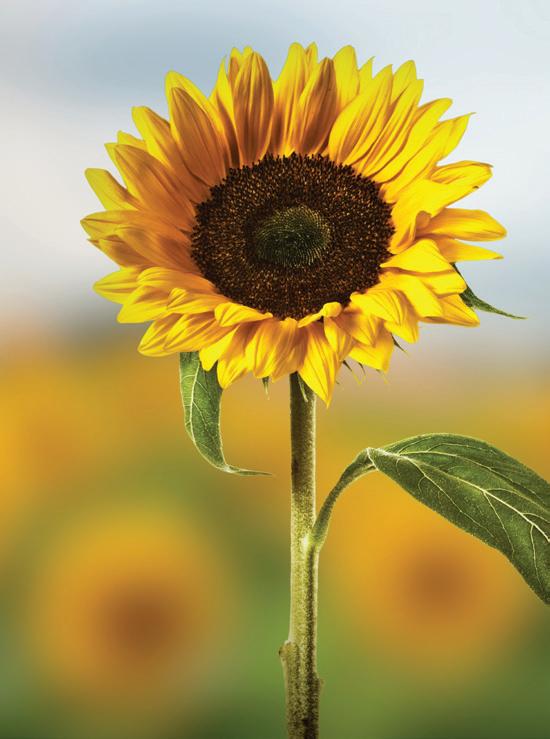

Honouring Indigenous Knowledge and Worldviews
By Dr. Harpreet Gill, R.Psych
As psychologists, we are called to uphold principles of empathy, cultural competence, and lifelong learning. This article aims to offer context, clarity, and guidance on how we, as psychologists, can better understand the lived impacts of colonization, support Indigenous approaches to healing, and confront our own discomfort with humility.
Colonization is not merely a historical event—it is an ongoing process with deep psychological consequences. From the forced removal of children into residential schools to the suppression of Indigenous languages and spiritual practices, colonization has caused intergenerational trauma. The Truth and Reconciliation Commission of Canada affirmed that cultural genocide occurred through policies aimed at eradicating Indigenous identity.
Role of Empathy in Psychological Practice
A key value in evidence-based psychotherapy is non-judgmental presence. Psychology does not exist in a vacuum; our tools, theories, and practices were developed in Western contexts and often overlook or pathologize Indigenous worldviews.
Bridging the gap between Indigenous and Western psychology requires more than inclusion. It demands transformation. The work is not easy, but it is necessary.
Healing vs. Defensiveness
Psychologists are trained to hold space for complexity, grief, and pain. When someone shares that their family member’s trauma was invisible or denied, this should not be dismissed as bias or ideology—it should prompt curiosity and compassion. Trauma presents in diverse ways; silence is not absence. Survivors often protect others from their pain or lack the language to describe it. To assume a story “must not be traumatic” because it doesn’t fit our expectations is contrary to trauma-informed care.
Indigenous Ways of Healing and Knowing
Indigenous psychology is relational, land-based, and holistic. It emphasizes balance, community, and connection to nature. When Indigenous Peoples share their healing journeys, they offer an invitation for us to expand our understanding of what healing can look like. While resilience can emerge from hardship, this does not absolve harm. As clinicians, we must resist the urge to reframe trauma in a way that soothes our own discomfort.
Cultural Humility
Cultural humility requires acknowledging that we do not and cannot know everything about others’ experiences. It requires listening, even when what we hear challenges our worldview. It is not our job to validate our family history or protect national myths. Our job is to help heal the wounds of history, and that starts with facing them honestly.
So, moving forward:
» Listen deeply to Indigenous voices without filtering through Western frameworks.
» Learn actively about colonial history, Indigenous psychology, and the TRC Calls to Action.
» Reflect humbly on your own discomfort. What is it teaching you?
» Advocate courageously for changes in training, policy, and practice that center Indigenous knowledges.
Bridging the gap between Indigenous and Western psychology requires more than inclusion. It demands transformation. The work is not easy, but it is necessary. As a profession dedicated to healing, we must rise to the challenge with open hearts and informed minds.
Dr. Harpreet Gill is PAA’s Director of Professional Affairs, a program that assists members and Alberta psychologists in learning about ethics and thinking through ethical dilemmas in their work and practice.
LISTENING IN ACTION
PAA’s 2025–2026 Professional Development Series
By Madison Fankhanel

Having only started in January as PAA’s Continuing Professional Development Officer, I am consistently amazed by the depth and breadth of expertise of our speakers. I have the privilege of recruiting speakers for events, which is not a responsibility that I take lightly. Our speakers are educating current and future psychologists about best practices and eventually influencing the mental health of individuals across Alberta.
Upon starting, I knew that I wanted to recruit speakers for a broad range of topics, specifically focusing on foundational ideologies. Topics that include cultural humility, working with diverse populations, and best practices when working with vulnerable populations, served as the foundation for my recruitment.
Among these topics, we recently hosted two workshops on the topic of “Bridging the Divide between Clinical and Cultural: Indigenous Awareness Training” with Leigh Sheldon, founder of Indigenous Psychological Services. I was gripped with her presentation, as were the participants in the room. Her training helped remind me how fundamentally important it is to incorporate cultural practices into your work while balancing Western understandings of mental health and illness. I was fortunate to recently attend a Cultural Safety and Humility training event with Wilma Spear Chief and Beverly Keeshig-Soonias, and Decolonizing Gender and Sexuality with Rae Madge, all while looking ahead to Dr. Karlee Fellner’s Land-Based & Advanced Tools for Wellness workshops.
As we move forward into the rest of our year, I hope to move forward with grace, humility, and a willingness to continually learn & grow in ways that make me a better human, and I hope you will join me along the way. Hiy Hiy.
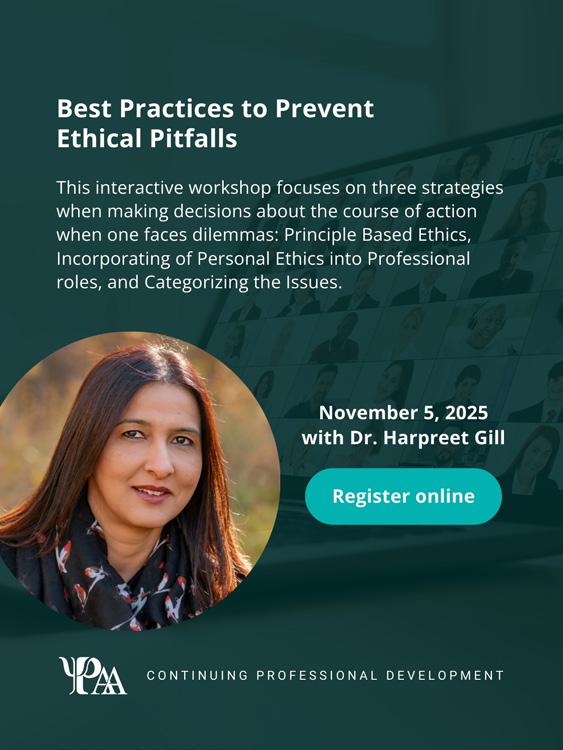
PAA’s Professional Guidance Program is here to support you.
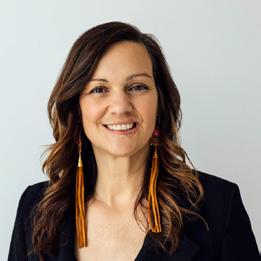
Understanding the Past to Take ReconciliACTION
By Leigh Sheldon, R.Psych
Until recently, Indigenous people could not fully feel or express the true impacts of Residential Schools. There was historical denial, an unwillingness to understand and lack of acknowledgement about the pain and its causes. I was 28 years old when I learned my Kuhkom (grandmother) attended the Bernard Residential school in Grouard. When I brought this forward to my mother, she confirmed that many of our family members have been affected and some did not return. I had no idea what that meant at the time. Or what that would mean for my children. Now as an adult, with more inquiry and perspective, this sits differently with me.
National Day for Truth and Reconciliation and Orange Shirt Day (September 30) is a time for voices to be heard. It is a time to witness, and a time of acknowledgement. This day invites everyone, especially those in helping professions, to deeply consider roles and responsibilities. It is a day of reflection on how to incorporate Truth and Reconciliation in our practice.
Reconciliation is more than an apology; it is about structural change, accountability, and co-creation.
Truth
Being truthful is about seeking truth, deconstructing what we think we know, and remaining open. These stories are still unfolding, and there is much yet to be told. Many have not been able to speak from their own experiences, and there are families with members who live in deep hurt and pain. They continue to not talk and live in isolation. Learning about the past offers a different perspective. It was a story created by a system that created reasons to justify why they felt it was okay to continue to do this for 160 years (five to six generations). I had no idea what life was like for my Kuhkom. All I could see was eyes of pain. She could not speak her truth, but we felt it.
Reconciliation
Let’s talk ReconciliACTION. If you are a psychologist, how do you incorporate the Calls to Action in your practice? What is your action plan to build and uphold a connection with someone that will continue to change? What is your role as a helper? How do
you apply Two-Eyed Seeing by Albert Marshall into your practice and sessions? Do you walk with Indigenous people in Allyship? Reconciliation is more than an apology; it is about structural change, accountability, and co-creation. It can be a time of deepening your understanding. Our allies are so important in helping Indigenous people make things right. It was our allies that helped create movement in gaining access to our human rights, stated in the “21 Things you need to know about the Indian Act” by Bob Joseph1 It shares many instances where allies provided a voice for those that had been silenced.
Taking ReconciliACTION
» Be involved and connected with Indigenous communities, hear their stories and participate in events.
» Visit the Indigenous markets and connect with the local vendors and artists.
» Identify and remove barriers for those seeking help: purchase transit cards/passes to help with accessing support; purchase and provide food cards, etc.
» Provide Indigenous books at your practice and be familiar with the content as part of conversation and rapport building.
» Include opportunities to bridge culture into practice by sitting with Elders and Knowledge Keepers. Remember to provide tobacco when you are requesting Sacred Knowledge.
» Mark and take part in days for support and awareness as a practice or organization: National Day of Awareness for Missing and Murdered Indigenous Women and Girls and 2SLGBTQIA+ People, Indigenous Peoples Day, National Day for Truth and Reconciliation, Orange Shirt Day, and more.
» Understanding the past means recognizing how it continues to shape and influence people today. It also means embracing the knowledge that comes from healing Indigenous trauma.
Remember:
» A collective trauma requires collective healing.
» Spirituality loss requires spirituality in healing.
» Relational trauma requires relational healing.
Intergenerational trauma requires intergenerational healing. The reality is this: people have lost their lives. People continue to lose their lives. And the systems that were meant to protect us continue to cause harm. There have been only 11 Calls to Action completed out of 94. You can help increase that number by walking with us.
1. 21things.ca/you-may-not-know-about-the-indian-act

Your purchase empowers Indigenous entrepreneurs and their communities.
indigenousbox.ca
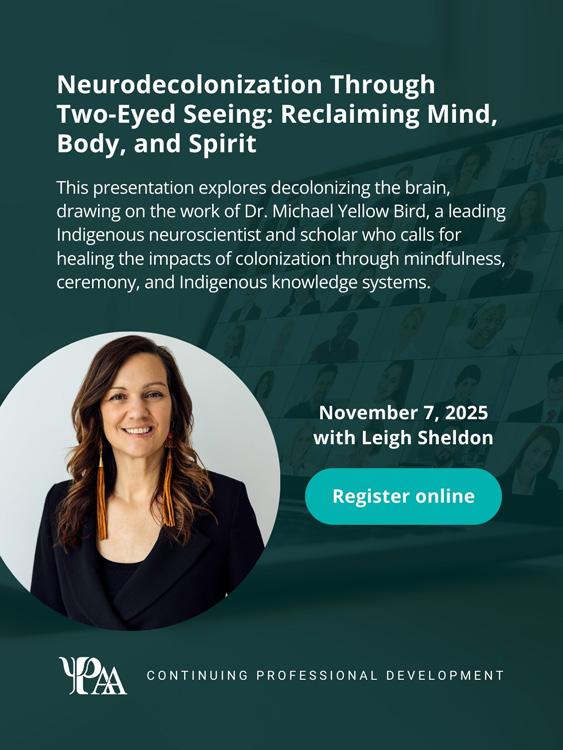
The new Privacy Compliance in Healthcare course available in all Brightsquid accounts can earn you 3 hours toward the CAP Continuing Competence Program (CCP) requirement of 8 hours in Ethics & Jurisprudence Knowledge & Practice.
The course is included with all Brightsquid subscriptions.
Free users can take the course for just $75. Request your 1-month free trial.
Healthcare gets better when we all work together.

Questions? Call: 1-800-238-6503

Calls to Action to Honour Our First Peoples
By Dr. Gina Ko, R.Psych
In my podcast, Against the Tides of Racism1, I have had the pleasure to interview resilient and excellent Indigenous guests. I appreciate them saying “yes” to the invitation and sharing wholeheartedly. It is troubling when the dominant narrative is that Indigenous Peoples are a homogenous group when there are intracultural differences within. There is also harm when the message is that they are only victims, have lost their language and culture, and that is all. At the same time, there is much to celebrate, especially when Indigenous scholars have worked tirelessly to preserve their culture and create valuable resources.
As psychologists, it is crucial to read and live by the Calls to Action created by the Truth and Reconciliation Commission of Canada2. Here, I will address two of them.
With knowledge comes responsibility—we can all do better. Let us support and celebrate our First Peoples with head and heart.
Call to Action 13 is about Language and Culture. As an educator in the early 2000s in Northern Alberta with the Little Red River Cree Nation, I learned the importance of youth speaking and preserving their Cree language. Every student in elementary grades would have Cree lessons once a day, and the secondary students would have lessons every other day. They also learn arts and crafts such as beading and making dream catchers. I can see how such a class is impactful for learners to continue to live their culture. The loss of language and culture is detrimental to Indigenous Peoples. There is a movement to revive Indigenous languages, and some scholars and researchers are involved in creating tools and applications to ensure their language stays alive and can be passed on to
1. www.againstracismpodcast.com
2. www.rcaanc-cirnac.gc.ca/eng/1450124405592/1529106060525
future generations. In my personal life, I am proud that I can speak Cantonese with my aunts, uncles, children, and friends. I use my language skills in the therapy room to support patients who require a language bridge. I have heard many words of gratitude from patients who tell me they would not go to therapy otherwise. Imagine a world where everyone can access therapy in their own language in this country!
Call to Action 19 is about Health. Living up north, I learned that Indigenous Peoples have one of the highest rates of diabetes and heart disease. These conditions are caused by factors such as a lack of healthy foods and sedentary lifestyles.
Up north, we participated in an annual walk to raise awareness about diabetes and encouraged the community to be more active. The young ones would go hunting with their families in October to learn the way of life in the past. I have been gifted dried moose meat by students, which was truly special. I have ventured into hunting one weekend when the community invited me. I listened to their stories of the way of life that had existed for centuries before the Europeans arrived.
I continually and intentionally learn the ways of reconciliation. With knowledge comes responsibility—we can all do better. Let us support and celebrate our First Peoples with head and heart.
2025 PAA AWARD RECIPIENTS
Each year, our association honours and celebrates our professional community. Here are the 2025 Award Winners:
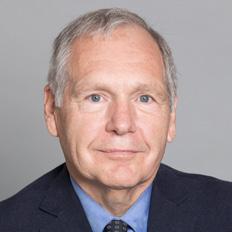
DR. KEITH DOBSON
Pettifor Lifetime Achievement
Keith Dobson is a Professor Emeritus of Clinical Psychology at the University of Calgary. His research has focused on models and the treatment of depression, particularly using CBT. He has held leadership roles in several organizations, including the Presidency of the Canadian Psychological Association and the World Confederation of Cognitive and Behavioural Therapies.
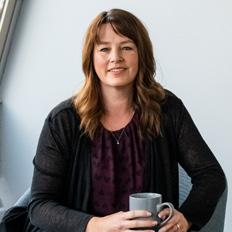
ANITA HARDER
Excellence in Clinical Supervision
Anita Harder is a Registered Psychologist with a background in working with children and families in the social services sector. In 2021, she moved into private practice to focus on supporting individuals, couples, and families navigating relationship dynamics and concerns. In addition to client work, Anita is passionate about supporting emerging psychologists in their growth and development.

KATHERINE ARCHIBALD
Master’s Thesis Research Award
Katherine Archibald is a Registered Provisional Psychologist in Calgary. She completed her MSc. in Counselling Psychology at the University of Calgary. Katherine’s research studied how students experienced being weighed or measured in a classroom setting, and how it impacted their body image and ideas about weight and health.

DR. GINA WONG
Excellence in Teaching Psychology
Dr. Gina Wong, is a distinguished psychologist and former full professor. A recipient of multiple prestigious awards, they’re renowned for their work in perinatal mental health, anti-racism education, and social justice endeavours. Founder of the Asian Gold Ribbon campaign, Gina advocates for Asian mental health literacy and fights against anti-Asian racism, gaining global attention through media engagements and public speaking.

DR. TIFFANY BEKS
Doctoral Dissertation Award
Dr. Tiffany Beks is a Registered Psychologist and Clinical Traumatologist located in Calgary. She completed a Ph.D. in Counselling Psychology from the University of Calgary and completed a doctoral residency in traumatic stress, child abuse/neglect, and perinatal mental health. Through her master’s and Ph.D. work, she investigated the experiences of Canadian military and veteran communities and how they navigated mental health supports.
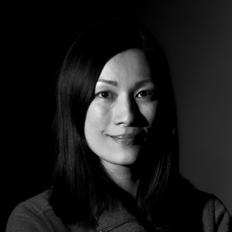
DR. GINA KO
Psychologist of the year
Gina Ko is a Registered Psychologist in Alberta, based in Calgary (Treaty 7 Territory). She has chaired the Asian Psychology Section of the Canadian Psychological Association (June 2024 to June 2025) and is the founder of Ko Psychology, where she works with individuals using culturally responsive, socially just, anti-racist, and antioppressive positionalities.

Culturally Humble, Culturally Safe: Rethinking Assessment with Indigenous Clients
By Dr. Mitch Colp, R.Psych
Psychological assessment is often regarded as objective, structured, and neutral. However, when collaborating with Indigenous clients, it becomes evident that no tool is culturally neutral, and no interpretation is context-free. Recognising this requires cultural humility— a lifelong commitment to selfreflection and power-sharing— that lays the groundwork for cultural safety in every assessment.
In alignment with the Truth and Reconciliation Commission of Canada Calls to Action, psychologists across Alberta are increasingly being asked to reflect not only on how we assess, but also on whom our methods serve. A growing body of literature on psychological assessment with Indigenous peoples in Canada offers a clear message: adapting tests is not equivalent to delivering culturally safe care.
Surface Adaptations Miss the Point
Over the past decade, psychologists have become much more aware of the limitations of standard tools when applied in multicultural settings. Psychologists attempt to improve relevance and ensure inclusivity by utilising different tools, modifying content, or using localised translations. While these efforts may enhance accessibility, they often fail to address the deeper issue. Such modifications alter the wording but not the structure or the foundational assumptions guiding the assessment process.
When assessment ignores context, it reduces people to scores. When it centres care, humility, and relationship, it becomes a powerful tool for healing, connection, and meaningful change.
Mainstream tools we use were developed within Western frameworks that emphasise linear development, individual achievement, and standardised cognitive models. These
findings do not accurately reflect the lived experiences, cultural values, or worldviews of Indigenous peoples. As a result, behaviours are misinterpreted, strengths are overlooked, and assessments lead to false conclusions, such as misdiagnosis or inappropriate labelling.
Cultural Humility Builds Safety through Relationship
Cultural humility goes beyond cultural competence; it is the clinician’s ongoing stance of curiosity and self-evaluation that makes cultural safety possible. Assessments that foster relationship-building before immediate data collection, are often more respectful and clinically accurate. When psychologists take the time to build trust and gain informed consent, they gather important contextual information that might otherwise be missed. This includes understanding intergenerational trauma, barriers to service access, and community-based protective factors that may shape individual behaviour and emotional expression.
Relational approaches require more time and intentionality. However, they can also prevent harm. In communities where psychology is associated with institutional control, surveillance, or forced separation, relational assessment is not only best practice; it is often a necessary condition for meaningful engagement and informed consent. It is not merely about adjusting techniques but adopting a posture of humility that lets clients define what safe care looks like.
Worldview Shapes Meaning
Standardised assessment tools are grounded in specific cultural worldviews. These frameworks often prioritise objectivity, measurement, and comparison to normative samples. Indigenous knowledge systems often, by contrast, emphasise relationality, balance, spirituality, and the interconnectedness of individuals, families, and the land.
Meaningful assessment does not simply acknowledge these differences; it actively incorporates them. The concept of Two-Eyed Seeing offers one approach. It encourages the integration of Indigenous and Western ways of knowing without collapsing one into the other. In doing so, it creates space for alternative interpretations of resilience, learning, or distress.
The clinical implications are significant. A child’s behaviour that may be interpreted as oppositional through a Western
lens could instead reflect cultural values such as noninterference or community-led learning. Similarly, a measure that identifies risk may overlook protective factors rooted in spiritual or cultural practices. The problem is not the tool. Rather, the tool was never designed to ask the right questions in the first place.
From Competence to Commitment
Recognising that a tool may be biased—or the wrong tool to use—is only the beginning; cultural humility demands that we then seek guidance from Indigenous Knowledge Keepers, critically evaluate appropriate assessments, and choose methods that align with the values and needs of the client and community.
This also involves advocating for change in how assessment is taught, funded, and regulated. There is a lack of validated tools developed by Indigenous psychologists or in collaboration with Indigenous communities. This gap should not justify the continued use of inappropriate instruments; it should drive Indigenous-led tool development, research, and professional training.
A Shared Ethical Responsibility
Psychologists are guided by ethical codes that emphasise fairness, respect, and non-discrimination. However, fairness cannot be achieved solely through procedural rigour. It requires self-awareness and a willingness to question the assumptions embedded in our models and tools.
Culturally safe assessment is not just a technical adjustment. It is a shift in practice that prioritises Indigenous ways of knowing, supports community self-determination, and restores trust. This approach also reflects our shared responsibilities under professional guidelines, the Truth and Reconciliation Commission, and the United Nations Declaration on the Rights of Indigenous Peoples.
Looking Ahead
As we reflect on how to improve assessment with Indigenous clients, one of the most important questions we can ask is not, “Which tool should I use?” but rather, “Whose voice is missing from this process, and how can I include it?”
For many of us, practising cultural humility on the path to cultural safety will involve discomfort and unlearning. But this process is essential. When assessment ignores context, it reduces people to scores. When it centres care, humility, and relationship, it becomes a powerful tool for healing, connection, and meaningful change.

Dr. Mitch Colp is a Registered Psychologist and the CEO of Hexagon Psychology, a national group practice at the forefront of virtual assessment and clinician training. His work focuses on psychological assessment, supervision, and the ethical implementation of emerging tools in mental health care.
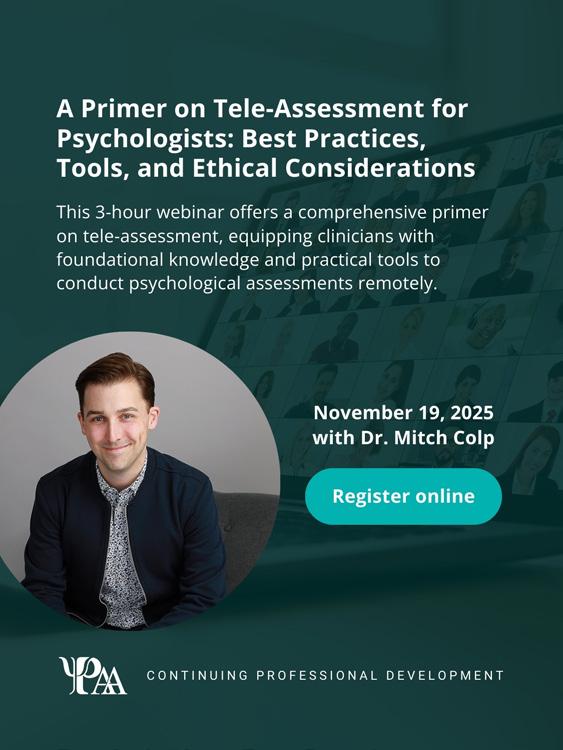
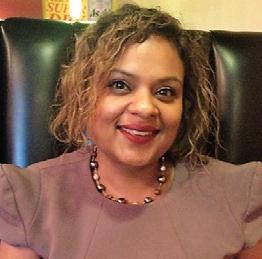
Centering Healing Through Culture, Land, and Intergenerational Knowledge: With Randi Sager, R.Psych
By Dr. Naheed Jawed, R.Psych
This interview was between Dr. Naheed Jawed and Randi Sager (pictured below). Randi is a psychologist of First Nations (Dakota, Saulteaux, Nêhiyaw, Métis) and German and Scottish descent. She belongs to the Muscowpetung Saulteaux Nation Reserve in Fort Qu’Appelle, Saskatchewan. Randi works from an Indigenous perspective that bridges Indigenous ways of being and Western healing practices.

To begin, please provide a brief background to our audience. What is Truth and Reconciliation and what purpose does it meet?
Truth and Reconciliation is about acknowledging harm to recognize and honour those directly or indirectly impacted by the residential school system and are given a chance to share their narratives and experiences. It is also to educate and raise awareness to ensure that all understand the true history of Canada, including the colonial systems that continue to cause harm (Government of Canada, 2024).
Truth and Reconciliation are also about justice and repair to create actual change in the systems that continue to marginalize Indigenous peoples. It supports the restoration of Indigenous governance, languages, cultures, and traditional lands. It is about healing and relationship building to support individual and collective healing through ceremony, community support, and cultural revitalization (Government of Canada, 2024).
How are Truth and Reconciliation concepts integrated into your therapeutic practices?
I specialize in Indigenous counselling and strive to create a safe space for clients to heal in their unique ways. My approach is holistic, integrating Indigenous ways of being and knowing
and psychology. I create a safe place for clients where they can explore their journeys and access their implicit knowledge. As recommended by the Truth and Reconciliation Commission, I acknowledge the significance of the connection to the land and how, for many, it is part of their healing journey (CPA, 2018). I also incorporate the principles of Truth and Reconciliation into my practice by offering cultural approaches as therapeutic options within the counselling space.
As an Associate Professor and Sessional Instructor, I educate and raise awareness to ensure that students understand the true history of Canada and its impacts on the Indigenous community. I also provide education in Indigenous approaches to therapy.
What is the difference between cultural competence and cultural safety?
Cultural competence within a counselling setting refers to the ability to understand, appreciate, and interact effectively with people from cultures or belief systems that differ from one’s own. To be culturally competent, one focuses on learning about Indigenous culture, including its ways of knowing and being, which can be achieved through training, acquiring relevant knowledge, and developing appropriate skills. When helpers become culturally competent, it increases their ability to function respectfully and effectively.
Cultural safety acknowledges historical trauma, systemic injustice, and the lived realities of Indigenous peoples. It goes beyond being culturally competent by being aware of the power dynamics, systemic inequities, and historical contexts of the treatment of Indigenous people. Creating cultural safety focuses on what clients require to feel safe in a counselling setting. Healing requires spaces that honour Indigenous ways of knowing, being, and relating.
How can psychologists provide a culturally safe atmosphere for their patients?
Helpers need to ensure patients feel emotionally, spiritually, physically, and mentally safe within the therapeutic relationship and space. It is essential in cultural safety for helpers to acknowledge and be educated in the colonial history and ongoing systemic oppression. Cultural safety involves helpers reflecting on their privilege, power, biases, and working on their healing journey. Creating a safe and supportive environment for clients to be their authentic selves. Cultural safety is about shifting the focus from the helper to the client’s experience.
Make the Most of Your Membership: Engaging with PAA’s Collaborate Platform
In celebration of Truth and Reconciliation, PAA would like to shine a spotlight on one of our Communities of Practice, Indigenizing Psychology.
Led by Michael Yankowski, the Chair of the community, Indigenizing Psychology was created to support learning and knowledge translation activities building on the Canadian Psychological Association’s Task Force Report, Psychology’s Response to the Truth and Reconciliation Commission of Canada’s Report, within the context of psychology in Alberta.
PAA acknowledges that Alberta is located on Treaty territory traditional lands, and we hope to provide a space for our Indigenous members to share their expertise and knowledge with each other and other non-Indigenous members. PAA also wishes to work alongside our Indigenizing Psychology Engagement Executives to facilitate discussion of what more we could be doing in the community. We hope all learning
ACCESS THE PLATFORM
Join your PAA peers in a members-only online community for discussions, resources, blogs, events, member directory, and more.
> Join PAA’s Collaborate Platform1
1.collaborate.paa-ab.ca/home
and discussion in the community works towards better understanding and aiding the public, particularly those who have been negatively affected by colonialism.
We would like to invite everyone to also view the other various Communities of Practice, and to apply to be an Engagement Executive if there is a topic that you are especially passionate about. PAA is always open to new ideas and expressions for the platform.
Have a question about Collaborate? Contact PAA’s Member Engagement Officer, Arim Kim: membership@paa-ab.ca.

PAA acknowledges we are on Indigenous land. We do this to strengthen the awareness of the presence, and rights, of all First Peoples. We do this to recognize the history of colonialism and its impact on the Indigenous Peoples of this land. We do this as a transformative act in response to Indigenous erasure. We do this in respect of the need for meaningful change toward reconciliation. And we do this to weave Indigenous presence into our systems and processes.
Lands in and around Alberta are traditional meeting and traveling routes for diverse Indigenous peoples, including the Cree, Dene, Stoney-Nakoda-Sioux, Blood, Blackfoot Confederacy Nations, the Métis Nation of Alberta, and many others. Their vibrant histories, languages and cultures continue to influence our vibrant communities, and whose footsteps have marked these lands for centuries.
In recognizing the contributions and importance of Indigenous Peoples, we take a necessary small step towards a clear and overt commitment to embody the promises and the challenges of Truth and Reconciliation.
